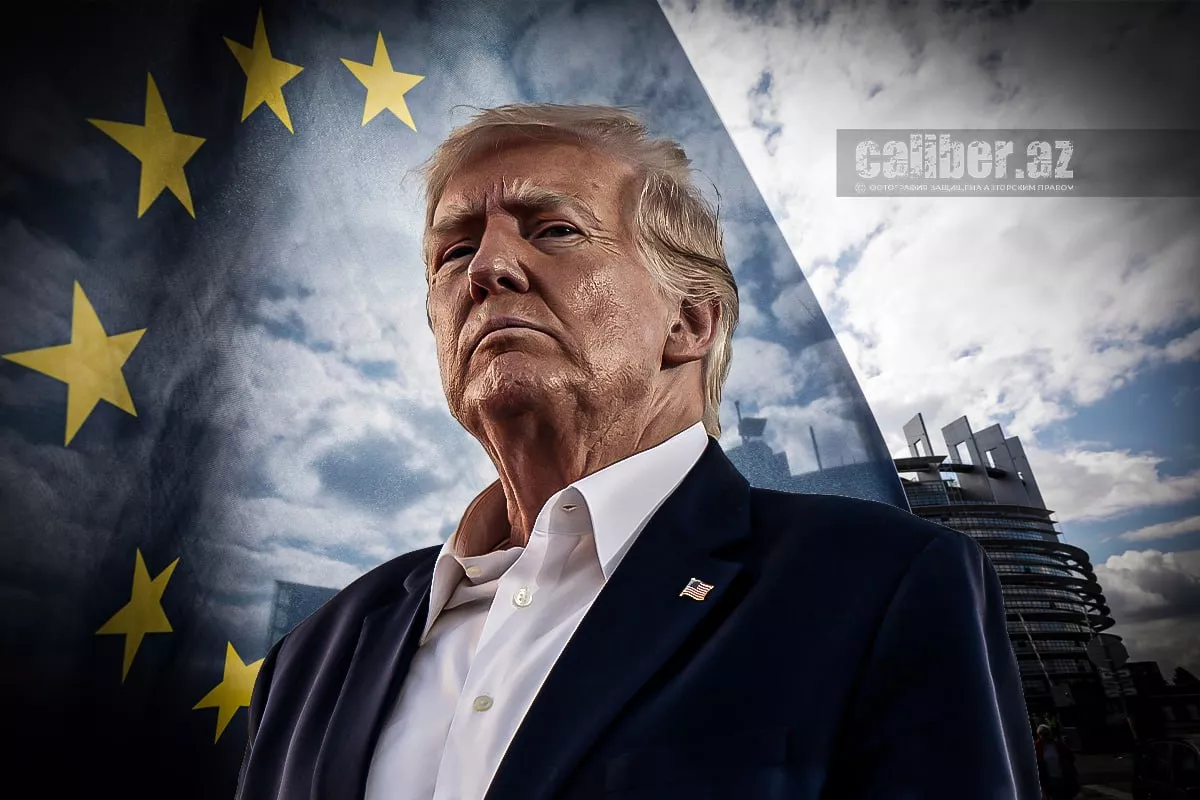Anti-American rhetoric in the EU Lots of words, few solutions
Europe… once a pioneer of ideas across politics, economics, philosophy, and culture, now often finds itself on the sidelines of global geopolitics, if not merely a silent observer.
In recent months, EU leaders have pursued measures they hope will bolster Europe’s global influence, particularly in the military sphere. Many aspects of what were once core European values—elements of so-called “liberal democracy” and social programmes—have receded into the background, if not disappeared entirely.
Several analysts argue that this shift is driven by a desire to project an “independent European stance,” partly in defiance of U.S. President Donald Trump’s administration. It is against this backdrop that experts are closely scrutinising recent statements by German Chancellor Friedrich Merz.

A few days ago, in a speech at the “Germany Day” conference addressed to the youth of Rust (Baden-Württemberg), Merz stated that “the future of the world is created in Europe.” He clarified that this refers not only to Europe’s self-perception or the European Union as a whole: “ We are looking at a political model. We are looking at a principle. We are looking at fundamental decisions on how we want to live together.” At the core of this, he emphasised, is the EU’s distancing from “dogmatic socialism and communism, from compartmentalised markets, and from an authoritarian style of leadership.”
Merz defined the basis of European policy for achieving this vision as “trust in freedom, in openness, in the ability of people to shape their future on their own responsibility in a liberal, tolerant, and cosmopolitan way.”

One could argue that perhaps only the Chancellor himself could clarify what he truly meant by freedom and openness, given the repeated attempts by EU leaders to abandon the principle of consensus in decision-making within the bloc. Similarly, Merz could explain what he meant by tolerance in the context of the EU countries’ increasingly stringent anti-migrant measures. Or, for example, what he intended by the term “cosmopolitan way.”
However, these questions are more about internal doubts. What drew the attention of many observers, though, was the Chancellor’s emphasis on a political model for shaping the world and his call to distance Europe from fragmented markets and authoritarian leadership styles — a veiled critique of Trump’s foreign policy, particularly in light of his statements about shaping the world’s future in Europe.
Overall, the occasional statements by European politicians about “European strategic autonomy,” first promoted by the well-known Emmanuel Macron, are nothing new. Yet recently, they have been voiced with increasing frequency. A case in point is the recent initiative by European Commission President Ursula von der Leyen to establish a new Europe-wide intelligence service under her leadership — a move that, at its sharpest edge, is also primarily aimed at countering Washington’s European policy.
The question, however, is what kind of strategic autonomy from the United States Europe can realistically claim today, given, for example, the ongoing government crisis in France or the EU’s openly acknowledged inability to defend itself independently in the event of military aggression on the continent.
How united is Europe when, just a few days ago, the United Kingdom rejected Brussels’ demand to contribute around €7 billion to the EU’s defence fund? As London stated, the British “will only agree deals that provide value to the UK and UK industry.”

Some readers might object that the UK is no longer part of the EU. Yet the discussion is about the European continent as a whole — and the EU itself is far from monolithic. For instance, at the end of October, reports emerged that Hungary plans to join forces with the Czech Republic and Slovakia to create a bloc within the EU “sceptical of Ukraine.” This is hardly surprising given Budapest’s well-known stance on many of Brussels’ key European agenda issues. And Italy, too, periodically adopts positions that diverge from those of Brussels.
At the same time, many experts are convinced that Brussels could successfully play the “European autonomy” card only if it established rational and pragmatic relations with China. In their view, against the backdrop of intense geostrategic competition between Beijing and Washington, such a move would send a significant signal to the United States that Europe is pursuing its own geopolitical agenda. However, Beijing’s call for precisely this approach is currently not being supported by Europe.
Undoubtedly, both von der Leyen’s idea of an essentially independent intelligence service and Merz’s recent statements are being closely analysed in the United States. But the question goes deeper than that. Is Brussels truly ready to go all the way in implementing its geopolitical projects if they are fundamentally anti-American, no matter how much this is disputed? In other words, are European leaders capable of backing their rhetoric with concrete action?








